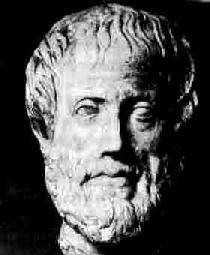Ethical Showbiz

Nowadays people are uneasy about criticizing fiction on moral grounds. On the one hand, everyone agrees that children learn bad attitudes and behavior from watching anti-social television programming. But the truth is, adults do too — or at least some adults do. Groups that campaign to clean up television restrict their suggestions, pretty much, to children. Grown-ups have the right to choose whatever they want to see without restrictions, though in fact we know that truly disturbed people tend to choose shows that prompt them to behave in dangerous ways. There’s not going to be any censorship in Western societies; you can count on that. Indeed, filmmakers like to “push the envelope” by becoming ever more daring in the content of their productions. There’s sort of an esthetic competition to see which director can shock us most. Gradually the public does get used to violence and depravity, and there are sometimes real messages in shows that make the shocking ones worth the distress they cause us. The Greeks produced tragic dramas in the confidence that they were imparting wisdom and morality to the audiences, and sometimes even today that is the outcome. I don’t regret having seen Schindler’s List, for example, though it was tough to take. And there’s another painful film still being shown in certain theatres — Brothers— which offers insights important enough to repay one for enduring its brutal imagery.
Let’s leave the sick personalities such as Marc Lepine out of this discussion and stick to normal audiences. Lepine, of course, watched pornographyand violent videos every day, and then killed fourteen women engineering students. Definitely people with mental disorders are harmed by the gross products that they tend to seek out. But disturbed people are not the only ones who can suffer from the effects of anti-social drama.
The question then is: How do we know when a play, film, or television drama is psychologically useful and when it is harmful to ordinary citizens? Dramatists nowadays do not ordinarily formulate these problems as ethical ones, though I believe they should. They can harm or help society enormously, and the choice between the two is an ethical choice. Writers have as much moral responsibility as anyone whose activities affect other human beings.
Aristotle’s little book, The Poetics, was probably intended primarily as an ethical primer for tragic playwrights. Probably writers accept his advice mostly because they would have intuitively understood what not to do, even without being told. The important thing is not to demoralize your audience by suggesting that immorality pays off handsomely, or that good will go unrecognized and unrewarded in the end. If you are writing a tragic story, the perpetrator must be neither very likeable nor completely despicable, for he must come to a bad end (receive his just deserts) and we must accept his fate as justifiable. If we like him too much, we will feel that life is unfair. If we hate him too much, we will gloat in pleasure over his downfall. What we’re supposed to get from the play is a sense of pity, but not a conviction that life is unjust. We see the tragic figure as flawed and we know he must suffer, but we feel sorry for him anyhow. That pity is a more elevated emotion than the contempt we might otherwise feel. Indeed, the whole point of a tragedy is to give us the healing, spiritually cleansing experience of pity mixed with acceptance.
Aristotle thought of drama as therapy, and so should we. It can teach us great insights. However, I don’t entirely agree with his notion about what audiences can tolerate and what is psychologically harmful to us. I think we can accept the downfall of a character whom we love and who is imperfect, but not villainous. We can accept his hard luck. Bad things can happen to the people we love without destroying our morale. But there are some things that a writer should not do. He should never leave the character’s good or bad qualities unrecognized in the end. And he should not force us to break empathy with a character who starts off being lovable but changes into a heel along the way. We can lose our loved ones, yet come away emotionally healthy. But we cannot stand to lose love itself. If our loved one becomes evil, we must eventually stop identifying with him and even begin to wish for him to fail. That emotional rupture is distressing for an audience. Writers produce such plots very rarely, and when they do, the audience hates the show. Aristotle did not spell this out, but I want to add this principle to the advice that he did give.



0 Comments:
Post a Comment
<< Home